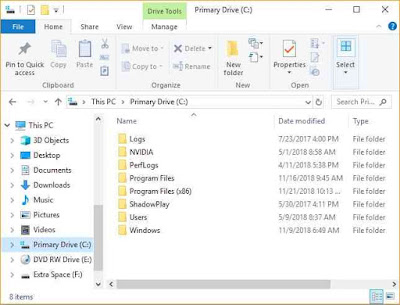The field of Information Technology (IT) is full of opportunities. For individuals who wish to pursue a career in IT, one of the biggest challenges can be deciding how to get started. Often, people are motivated to learn new skills that will enable them to pursue bigger and better opportunities in both their personal and professional lives. Learning a new skill takes time and discipline, but with the right motivation, it doesn’t have to be painful. In this section, we will discuss why the time and effort you invest in learning Linux will be beneficial to you; and remember, everyone working in IT had to start somewhere.
Learning
Linux is a great way to start! Why is Linux an important skill to learn in
today’s technology-driven world?
To understand why Linux skills are
unique, let’s examine the graphical user interface (GUI). This is the interface
that you are probably using on your smartphone, tablet or computer today. A GUI
displays icons and images that you can select to tell your device what you want
to do or use. Behind the GUI, is a code that a programmer developed. When you
click on an icon or folder in a GUI, it sends a command to the code telling the
system what to do.
The Linux
command line is a text-based interface that accepts commands that you type into
it. These commands cause an action
to be executed onto the computer system’s operating system. Of course, windows
and icons are easy to use, however, the command-line is often the hero when it
comes to system administration and troubleshooting as it gives a clear picture
of what the system is doing at any given moment.
All this
considered, why is learning Linux a good start for someone considering a career
in IT? As previously stated, the use of Linux is widespread and is continuing
to grow in all areas of technology. What do companies and organizations like
NASA, McDonald's, New York Stock Exchange (NYSE), DreamWorks Animation, and the
US Department of Defense all have in common? Yes, you guessed correctly, they
all use Linux.
These companies have something else in common in that they recognize that investing in technology is important in a world that is anxious to adopt new technology to innovate and solve problems. The proliferation of tech in almost every aspect of life has solved many problems but has also created some new challenges. For example, now that almost everything can be done online, we are creating digital data at a rapid rate, which is creating a demand for that data. Technical skills to analyze, process, protect, and transmit data are therefore also in high demand. Learning Linux can help you on the journey towards acquiring these skills.
The following are examples of a few IT professions that require knowledge of Linux skills:
- Network Engineering - Network engineers are responsible for
managing the network computers use to transmit data. Knowledge of Linux is
critical for network engineers since more than half of the world’s servers
are Linux-based. Most network operating systems are based on a variation
of Linux.
- Cybersecurity - Cybersecurity professionals monitor
and investigate security threats to data on systems. Linux is used in
cybersecurity to carry out system penetration testing and assess the
vulnerability of a system.
- Developing/Programming - Developers and programmers design
computer applications. The Linux command-line allows developers and
programmers to script; a function that allows a user to put commands
together to execute complex actions on a computer. Linux is also used in
this field because only Linux allows users to access its source code,
giving users the ability to experiment with the code and learn by doing.
- Data Analysis - Data analysts and scientists sort and
analyze data sets to find patterns in order to report and predict trends
and behavior. Data analysts use Linux due to the wide array of tools and
commands available for data analysis, such as MySQL and more.
Linux
operating systems come in many forms. There is a variety of distributions
available to fit the needs and demands of many IT sectors. For example,
cybersecurity professionals may use Linux Kali, developers may use Linux
Ubuntu, regular users may use Linux Mint, and enterprise servers can run on Red
Hat Enterprise Linux.
A few other great reasons to use and learn Linux are that, in
many cases, it is free, easy to install,
open-source, and there is an active Linux community available for support. This allows beginners who want to start growing their IT
skills to start using Linux easily.





